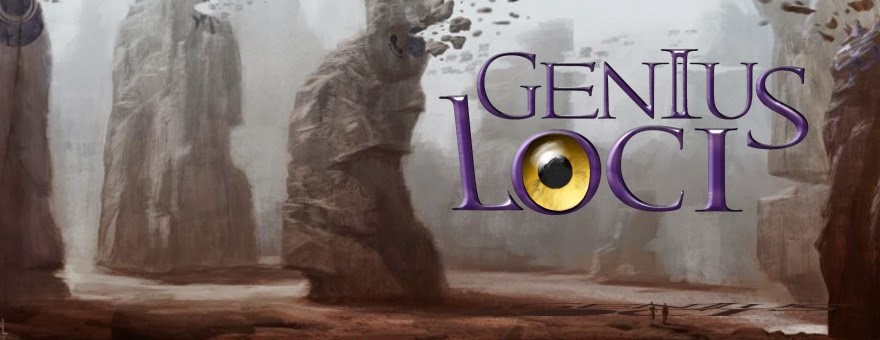• "Light with you" is the most common greeting for meeting and parting. Light is an important part of spirituality as the symbol of the Great Spirit itself, and is used in many sayings.
• "Safe ways" are wished on respected people leaving and is hardly ever said as a mere ritual, but the speaker either means it, or omits saying it altogether.
• "Guard of the Four" is a shortened greeting when parting, to grant the leaving party the protection of the Four, the greatest force of order, who have also been known to happen upon travellers who're lost or in trouble.
• "Silence!" is hardly a standard greeting, but is used among those who think being a speaker is bad. The voiceless are the counterpart to the speakers, and thus, keeping the silence will keep it that way.
"The older natives spoke almost entirely in proverbs and were so hard to understand even our polyglot friend Mianrat scratched his head in puzzlement. Fortunately the younger people spoke quite regularly, even though their elders frowned at their lack of finesse. Or so we think they said."
— Pelehnot, traveller
• "By the Great Spirit", "in the Spirit's name", or "by all the spirits" are called out in shock or awe. With large protective nature spirits around, they may be called on instead; flourishes include attributes of those spirits like "by the eternity of the Spirit", or "by Molmorur's mumble".
• "Dalgango" is an insult. Dalgangos are pack animals that are considered dirty, mean, and stupid.
• "Iskilanian" describes most honourable fulfillment of duty, even in danger to oneself. It goes back to the message runner Iskilan, who crossed the frozen sea to deliver the letter preventing a war between two countries.
• "Kmalian teapot" is a thing that is superfluous, gets way too much attention, or is suspected to be useless altogether.
• "black-handed accuser" refers to the custom on Accusation holiday (17th day of Judgment). Everyone's sorrows are heard, but every grievance requires one finger to be blackened, and so a black-handed accuser is one who is never happy.
"My friend claims that nature spirits have proverbs too, but hasn't found what they refere to. He thinks its the Great Spirit; the larger spirits have also been found to quote former Four, which took quite some historical research and a bunch of wrinkly elves, but it seems true."
— Verelin, mage
Artists' notes
A world of fun, inventing proverbs. One standard expression may come from sounding awesome, and then it needs a cultural background, and then I have new historical events. Some were harder to translate from German and have been left out for now, like "magisch" and "zauberhaft", referring to the mages or wizards, respectively.












